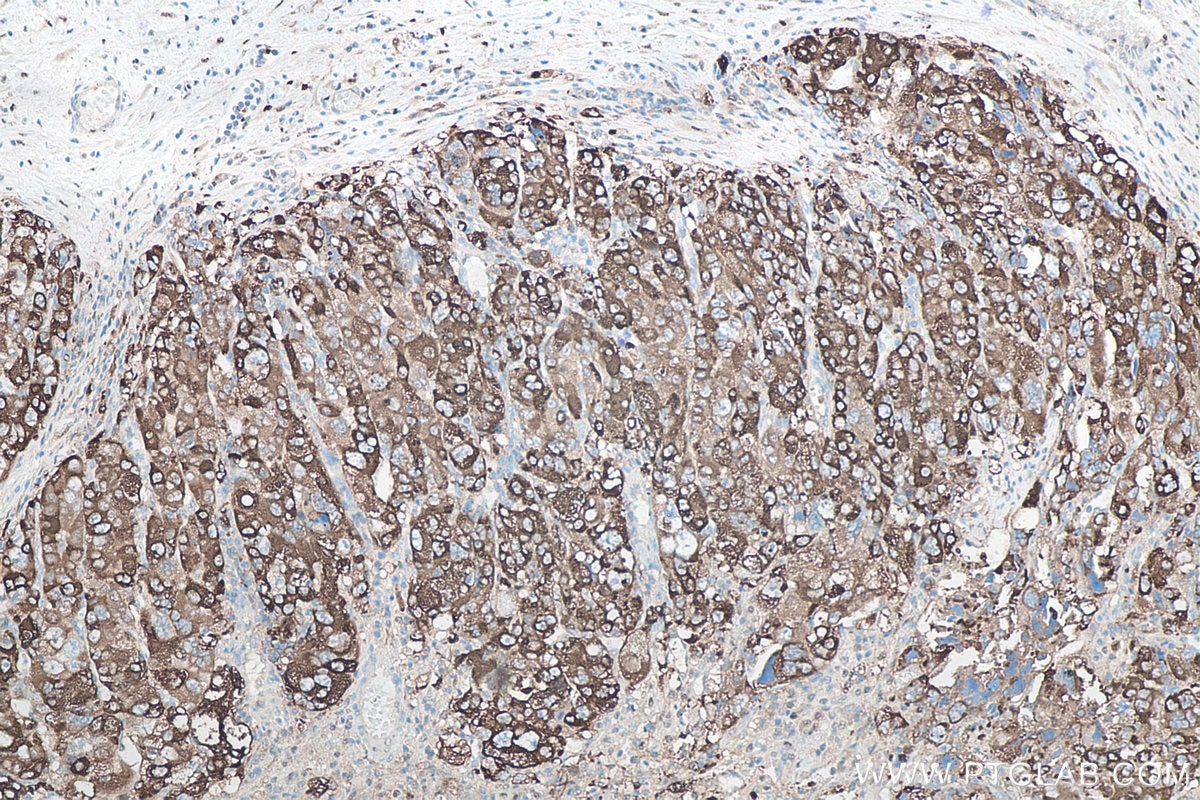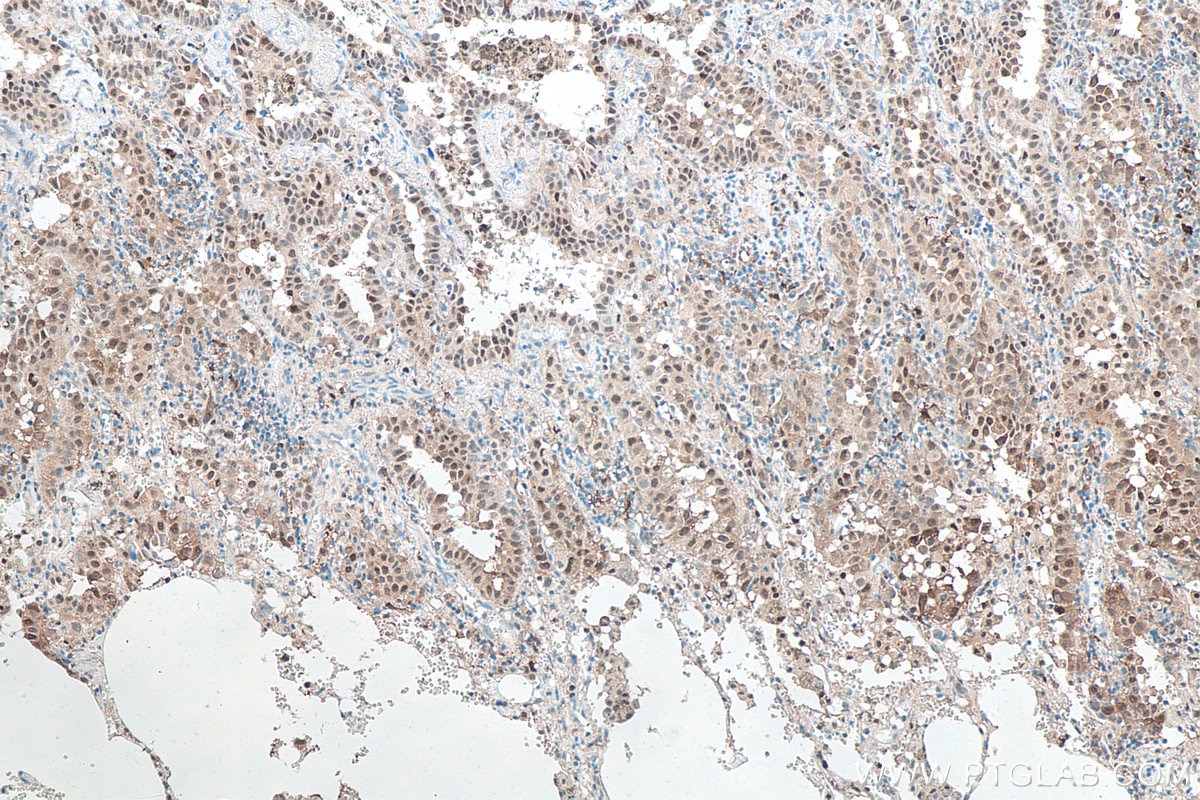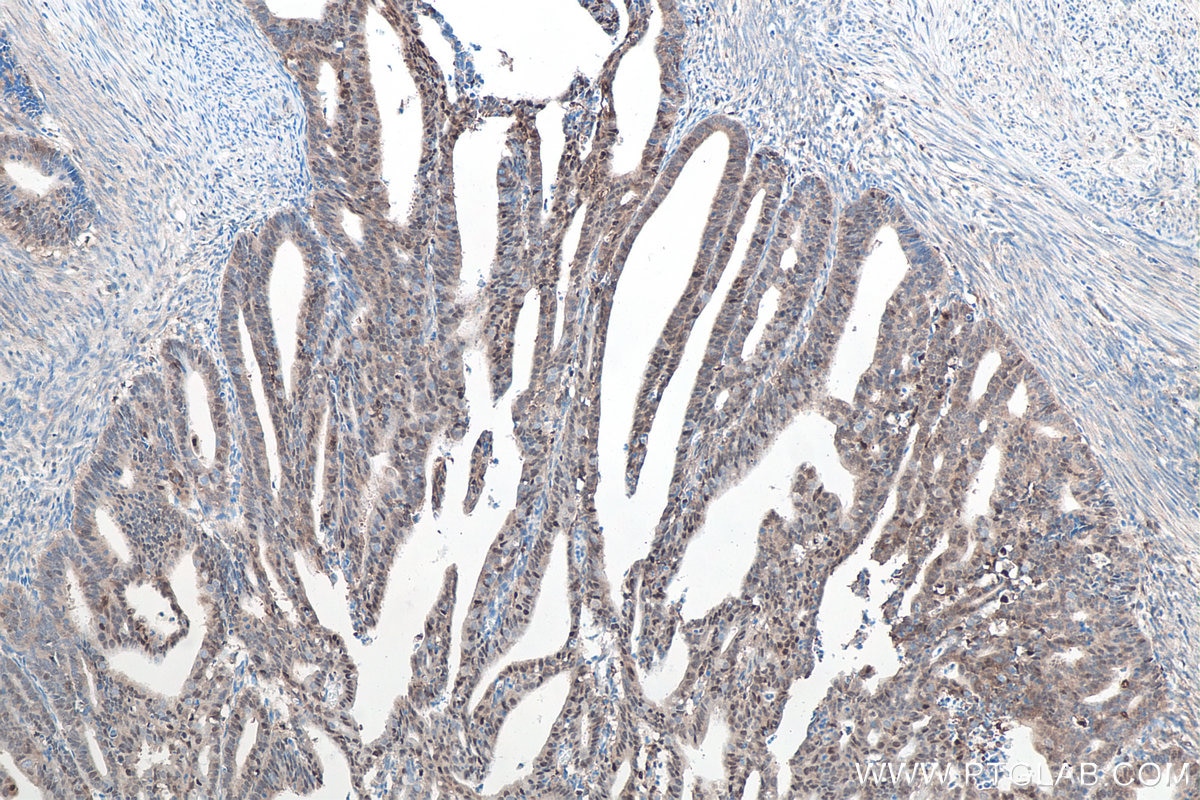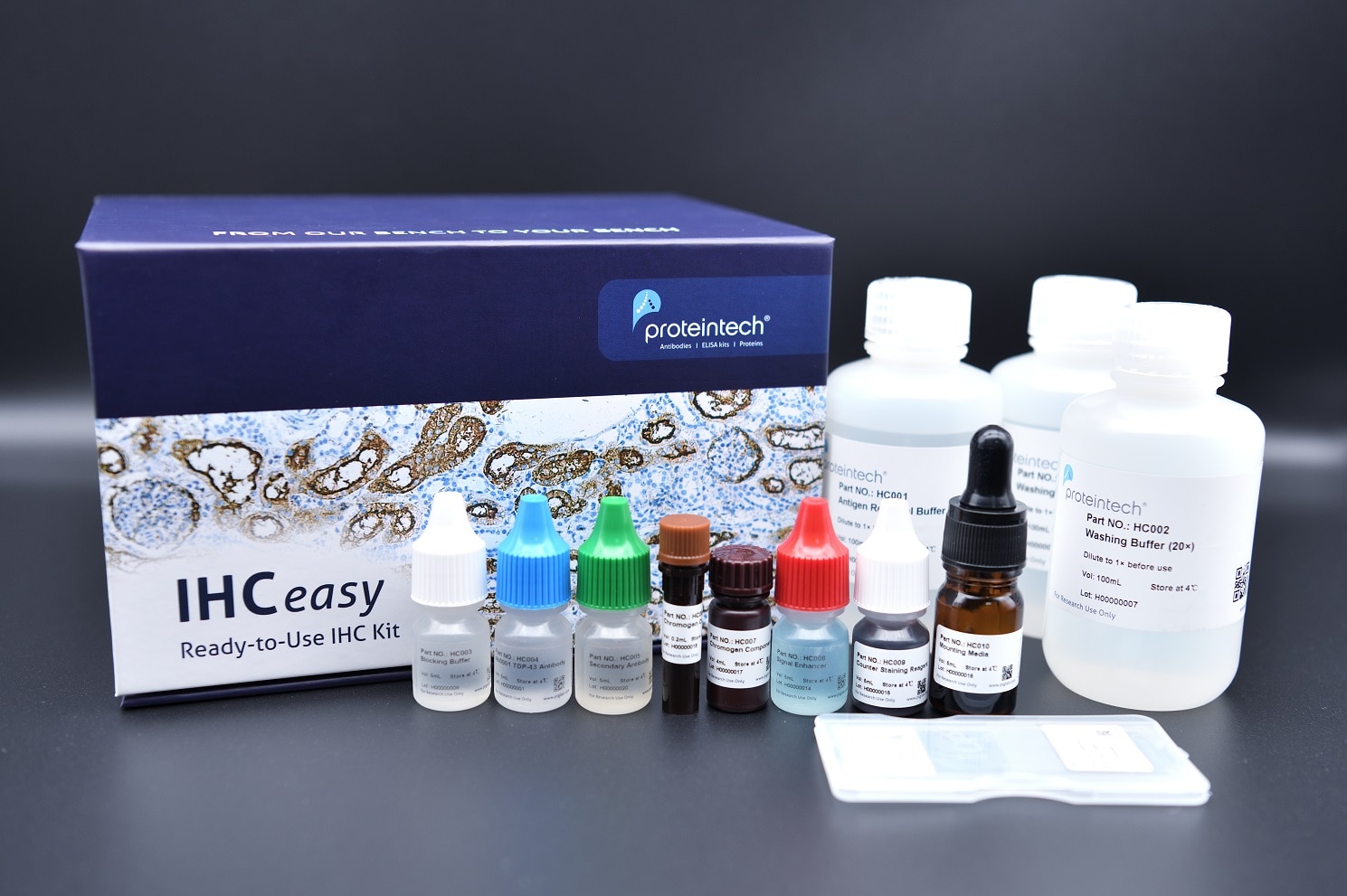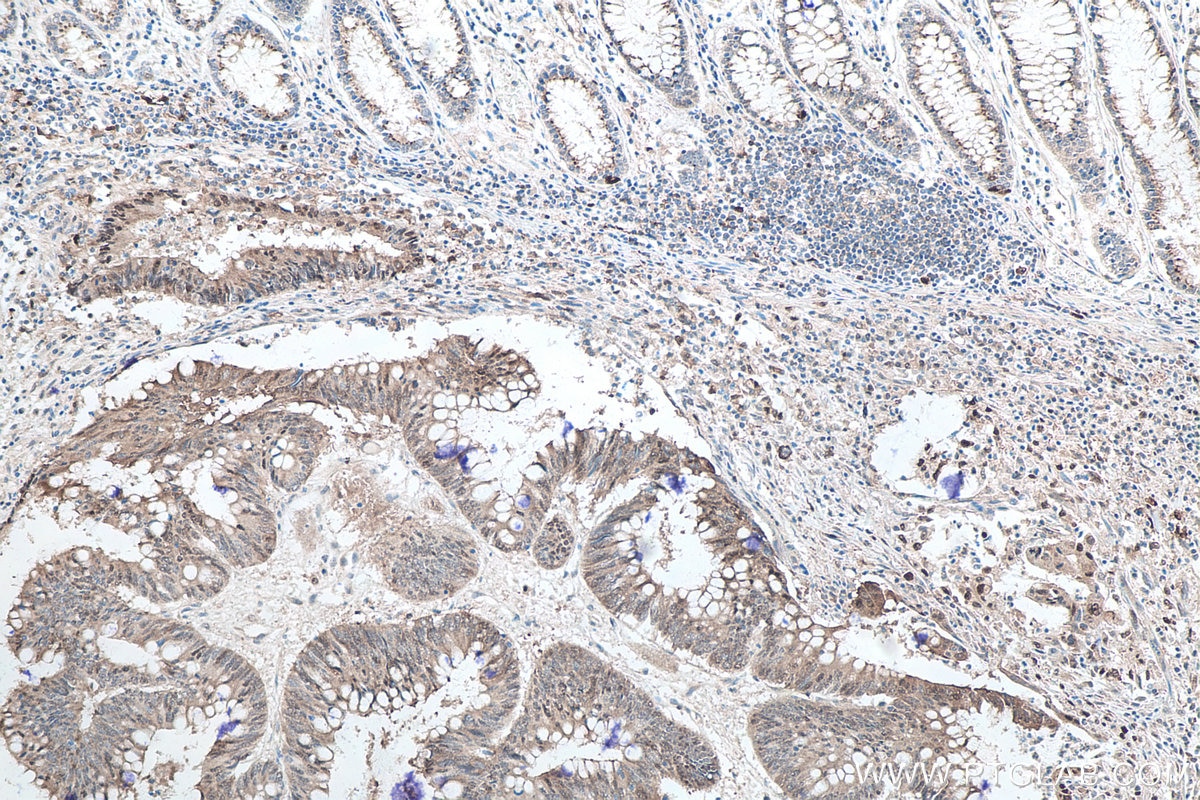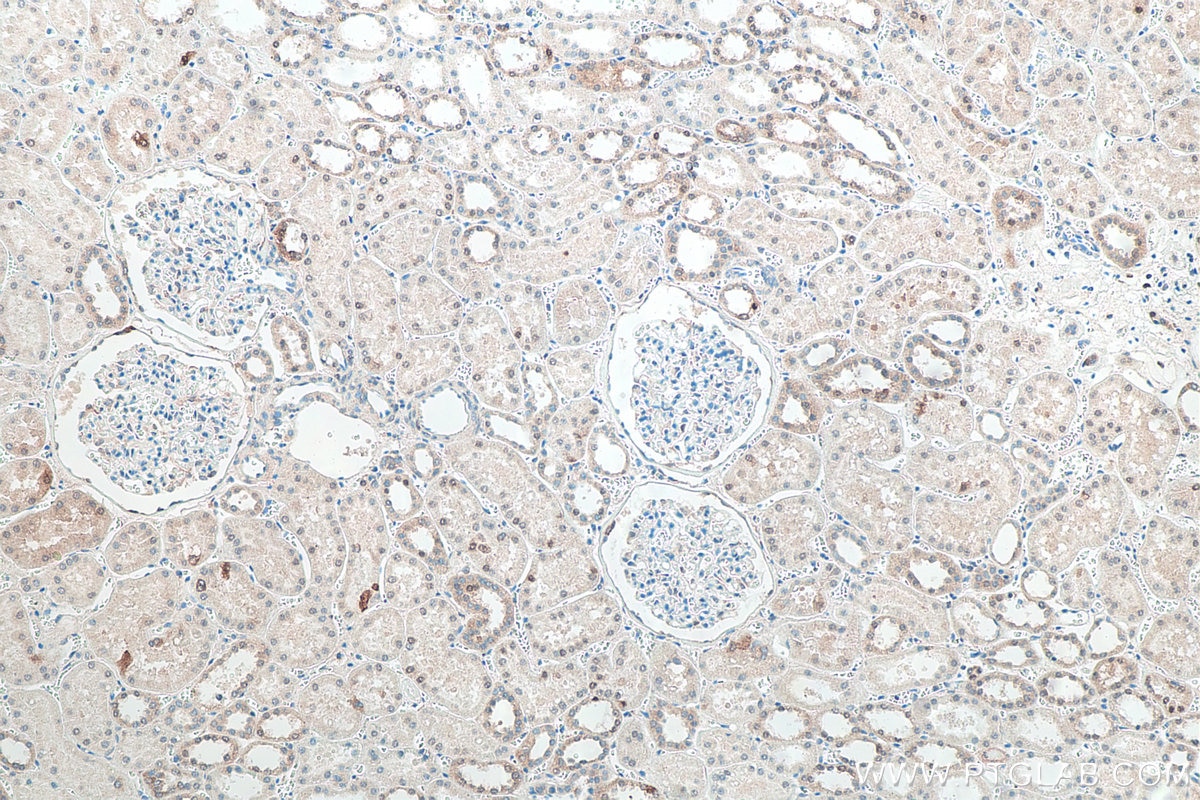IHCeasy® P62,SQSTM1 Ready-To-Use IHC Kit
P62,SQSTM1 Ready-to-use reagent kit for IHC.
Cat no : KHC0058
Synonyms
A170, EBIAP, ORCA, OSIL, p60, P62, P62/SQSTM1, P62;SQSTM1, p62B, PDB3, sequestosome 1, SQSTM1, Ubiquitin binding protein p62, ZIP3
Validation Data Gallery View All
Product Information
KHC0058 is a ready-to-use IHC kit for staining of P62(SQSTM1). The kit provides all reagents, from antigen retrieval to cover slip mounting, that require little to no diluting or handling prior to use. Simply apply the reagents to your sample slide according to the protocol and you're steps away from obtaining high-quality IHC data.
| Product name | IHCeasy P62,SQSTM1 Ready-To-Use IHC Kit |
| Sample type | FFPE tissue |
| Assay type | Immunohistochemistry |
| Primary antibody type | Mouse Monoclonal |
| Secondary antibody type | Polymer-HRP-Goat anti-Mouse |
| Reactivity | Human |
Kit components
| Component | Size | Concentration |
|---|---|---|
| Antigen Retrieval Buffer | 100 mL | 50× |
| Washing Buffer | 100 mL ×2 | 20× |
| Blocking Buffer | 5 mL | RTU |
| Primary Antibody | 5 mL | RTU |
| Secondary Antibody | 5 mL | RTU |
| Chromogen Component A | 0.2 mL | RTU |
| Chromogen Component B | 4 mL | RTU |
| Signal Enhancer | 5 mL | RTU |
| Counter Staining Reagent | 5 mL | RTU |
| Mounting Media | 5 mL | RTU |
| Datasheet | 1 Copy | |
| Manual | 1 Copy |
Background Information
Sequestosome 1 (SQSTM1/p62) is a multifunctional adaptor protein implicated in selective autophagy, cell signaling pathways, and tumorigenesis. p62 has been implicated in shuttling ubiquitinated and sometimes aggregated proteins for autophagic degradation. As a autophagy-specific substrate, p62 is degraded during the autophagic process, which makes intracellular level of p62 as a marker for autophagy flux. p62 is a component of inclusion bodies/ protein aggregates found in human diseases, including Huntington's disease, Alzheimer's disease, Parkinson's disease in the brain, and nephropathic cystinosis in kidney.
Properties
| Storage Instructions | All the reagents are stored at 2-8°C. The kit is stable for 6 months from the date of receipt. |
| Synonyms | A170, EBIAP, ORCA, OSIL, p60, P62, P62/SQSTM1, P62;SQSTM1, p62B, PDB3, sequestosome 1, SQSTM1, Ubiquitin binding protein p62, ZIP3 |

